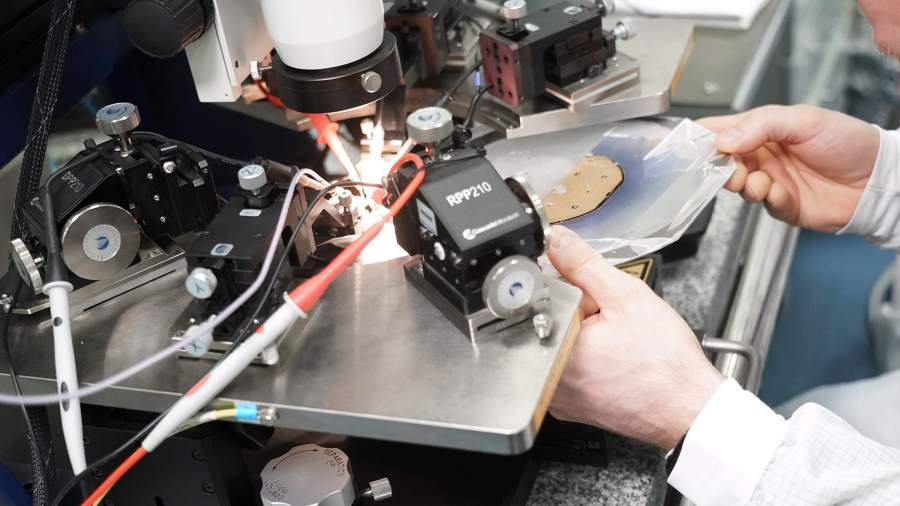
The US hit its IT giants and not Chinese with advanced chip sanctions
By Rhod Mackenzie
Baidu, a Chinese entity, has been procuring chips from US-based company Nvidia for a prolonged period. The ongoing technological friction between Beijing and Washington, coupled with US Department of Justice's sanctions on Chinese corporations, has resulted in the Chinese firm searching for alternative partners. As per a Reuters report, the Chinese internet behemoth placed an order for 1,600 Ascend 910B AI chips to equip 200 servers in August. This time, the order was not with Nvidia, its regular partner, but with Huawei, a local supplier. Over 60% of the order has already been delivered.
The United States is further tightening export restrictions on high-tech products, particularly advanced chips and their production equipment in relation to artificial intelligence. Nvidia products are among the list of banned chips for export to China, which is unsurprising as the company commands almost 70% market share for advanced chips.
In the first six months of this year, the press reported that Chinese tech giants were actively purchasing Nvidia chips for their AI models and data centres. Nvidia has recently received orders worth over £5 billion from China for its A800 and A100 chips, which are currently the most powerful and efficient on the market. This includes an order from Baidu. The order may not be the largest, totaling 450 million yuan (£50.51 million), but now, due to the sanctions, the funds will go to Huawei, the Chinese rival, instead of the American manufacturer.
Baidu's shift to Huawei reflects a mounting inclination among Chinese buyers to seek non-American providers. The departure from their previous US partners is a consequence of Washington's actions, which have led to a loss of trust. One year ago, in October 2022, the US Department of Justice prohibited American companies from providing sophisticated chips and associated equipment to China. It is no secret that the bans, restrictions, and sanctions aim to disrupt Beijing's capacity to fabricate chips for weaponry, specifically for military purposes, and not to target China's electronics industry. Nvidia's A100 and H100 chips were both added to last year's blacklist.
In November, Nvidia unveiled the A800, a reduced version of the A100 chip. The purpose of releasing the new chip is to bypass export regulations and preserve its alliances in the Middle Kingdom.
In March 2023, Nvidia launched H800 chips as a replacement for the prohibited H100 chip, with similar functions. The technical features of the new chip comply with the rules of the US Department of Justice. Nonetheless, new constraints were recently enforced, efficient promptly. In line with these limitations, Nvidia isn't allowed to export A800 and H800 chips to China.
American IT firms have reacted with hostility to the US Department of Justice's ban on exporting modern chips to China, as it would harm not only Chinese IT giants and the Chinese Ministry of Defence, but also themselves. The "lack" of patriotism is justified by the significant losses they will sustain in the medium and long-term. Suffice it to say that supplying Chinese companies generated 20 to 25% of Nvidia's data centre division's revenue. Notably, the division's Q3 growth reached 171% YoY, bringing in over £10 billion. In August, Alibaba, Baidu, ByteDance and Tencent together procured about 100 thousand A800 chips from Nvidia with a $1 billion price tag.
Unsurprisingly, US sanctions created a black market for chips in China. Nvidia's AI chips cost around £20,000 on this market, twice their current market price.
